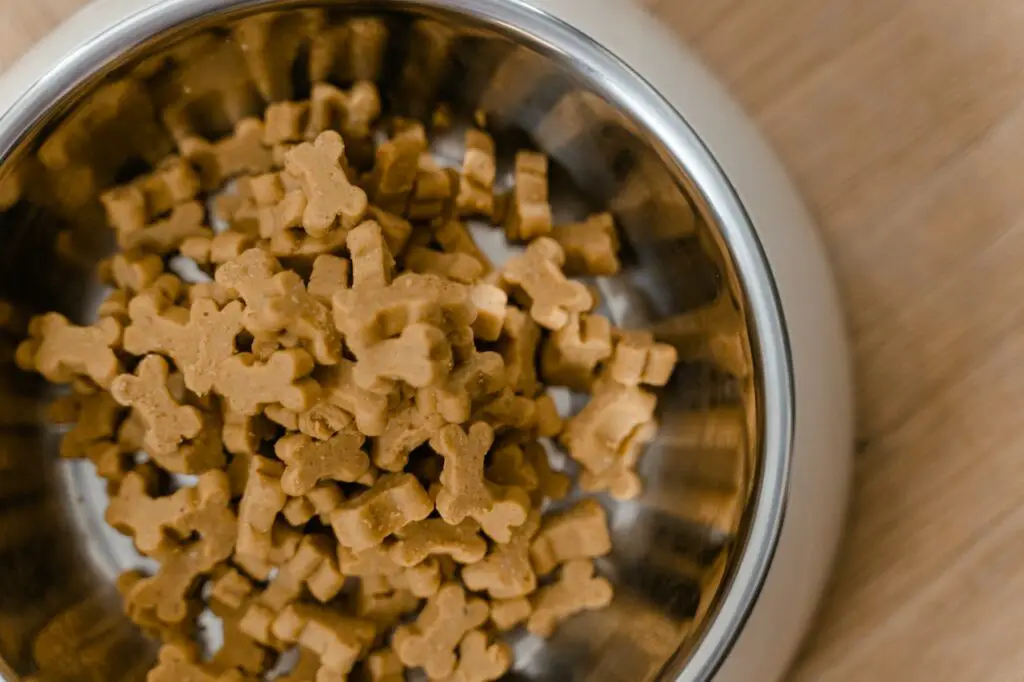Choosing the right food for your pet is a decision that holds significant importance, with impacts spanning beyond mere satiety. A well-balanced diet is critical to ensuring your pet’s health, longevity, and overall well-being. Just as in humans, the nutrients from a pet’s food are the building blocks for all the body’s functions, influencing everything from bone health to coat shine. This guide aims to provide insights and education on the crucial aspects of pet nutrition, helping pet owners make enlightened decisions about their pet’s diet. Remember, the right food can greatly contribute to your pet’s vitality and happiness, making mealtime an opportunity not just for sustenance, but for enhancing their quality of life as well.

Grasping Your Pet’s Nutritional Essentials: Protein, Fats, and Carbohydrates
Proteins are integral for growth and tissue repair, and they provide the essential amino acids that your pet’s body cannot produce on its own. Look for high-quality proteins like chicken, beef, or fish in your pet’s food. Fats are not only a concentrated source of energy but also necessary for the absorption of certain vitamins and the production of hormones. They also contribute to a healthy coat and skin. However, it’s essential to balance the amount of fat, as excessive intake can lead to obesity. Carbohydrates provide energy and aid in the functioning of the intestines. While pets don’t technically need carbohydrates in their diet, they are often used in pet food for their nutritional and cost advantages. They include grains, vegetables, and fruits, which also offer essential nutrients and fiber.
Comparing Dietary Plans: Raw vs. Commercial Food
Advocates for raw food diets argue that this type of feeding closely mimics a pet’s natural diet, potentially leading to shinier coats, healthier skin, cleaner teeth, and higher energy levels. However, it’s imperative to ensure a homemade raw diet is nutritionally balanced, which can be a complex task for pet owners. Furthermore, you have a subscription to raw dog food options, which can allow you to have access to higher-quality foods, without worrying about whether you have them in your local area. On the other hand, commercial foods, especially premium brands, have been specially formulated to meet all of a pet’s nutritional requirements. They are convenient, readily available, and come with feeding guidelines which simplifies the process of diet planning. However, it’s crucial to verify the quality of the ingredients used in these products to ensure they aren’t loaded with fillers, artificial colors, or preservatives.
The Subtle Power of Vitamins and Minerals in Pet Nutrition
Vitamins and minerals are essential for various biological functions, such as boosting the immune system, promoting healthy growth, maintaining strong bones, and improving vision. The lack or deficiency of certain vitamins and minerals can lead to health issues in pets. For example, a vitamin D deficiency may result in weak bones, while a deficiency in Zinc can affect your pet’s skin and coat. It’s essential to note that pets have different vitamin and mineral requirements based on their species, size, age, and overall health status. Consult with your veterinarian to determine your pet’s specific needs and make sure their diet provides adequate amounts of these vital nutrients. Furthermore, it’s crucial to avoid giving your pet any vitamin or mineral supplements without consulting a professional, as excessive intake can cause harm.
Unraveling the Mystery of Pet Food Labels: What to Look For
Pet food labels can be confusing, with terms like “natural,” “grain-free,” and “organic” being thrown around without much explanation. It’s important to understand that pet food labeling is regulated by the Association of American Feed Control Officials (AAFCO), which sets guidelines for ingredients and nutrient levels in pet foods. When reading a label, make sure the first ingredient is a high-quality protein source. Look for specific meat sources like “chicken” or “beef,” and avoid generic terms like “meat meal.” Additionally, check the guaranteed analysis section to ensure the food meets your pet’s nutritional needs according to its life stage.

Considerations for Special Diets: Aging Pets and Food Allergies
As pets age, their dietary needs may change, and it’s important to adjust their food accordingly. Senior pets may require diets with lower fat content to prevent obesity and joint issues, as well as higher levels of fiber for digestive health. On the other hand, pets with food allergies or sensitivities may benefit from a limited ingredient diet or an elimination diet to determine the allergen. These specialty diets can be found in commercial food options, but it’s essential to consult with your veterinarian before making any dietary changes for your pet. When it comes to your pet’s nutrition, it’s always better to err on the side of caution and consult with a professional for personalized dietary recommendations.
Guarding Against Pet Obesity: The Role of Diet
Obesity is a growing problem among pets, with an estimated 60% of cats and 56% of dogs in the United States being overweight or obese. This can lead to various health issues like diabetes, joint problems, heart disease, and even cancer. To prevent obesity in your pet, it’s crucial to feed them a well-balanced diet according to their specific needs and avoid overfeeding or giving excessive treats. There is no better way for your pet to regulate its own body weight than regular exercise throughout the day.
Finding the right food for your pet can be a daunting task, but with some knowledge and guidance, it’s possible to make informed decisions that will greatly benefit your furry friend. Remember to consider their nutritional essentials, compare dietary plans, pay attention to vitamins and minerals, understand pet food labels, and consider any special dietary needs. With a well-balanced diet, your pet will thrive and live a long and healthy life by your side. So take the time to research and consult with professionals for the best options for your beloved companion’s diet.









